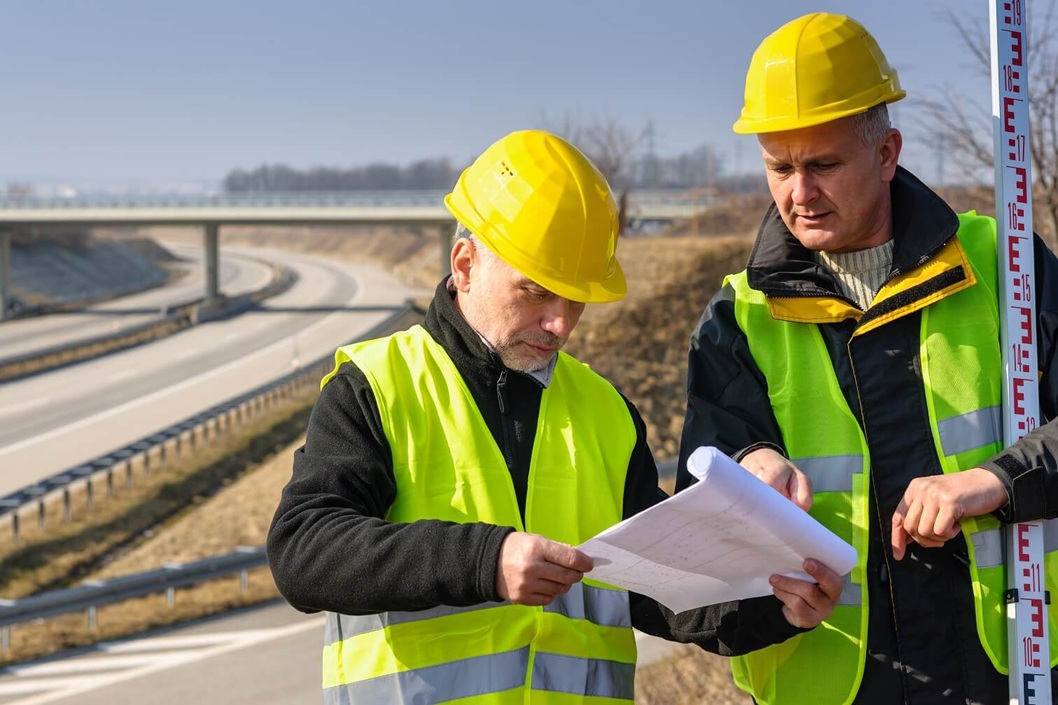.jpg)
What are CSCS cards and SMSTS certificates, and how do I get them?
This article will guide you through the basics of how to get a CSCS card and an SMSTS certificate, helping you understand what each involves and where to begin. For more detailed, role-specific advice, we recommend speaking directly with the compliance team at Carrington West.
How do I get a CSCS card?
A CSCS (Construction Skills Certification Scheme) card provides proof that individuals working on construction sites have the required training and qualifications for their role. While it is not a legal requirement, most major contractors and clients now require a valid CSCS card as part of their site access policies.
To apply, you must first identify the correct card type using the CSCS Card Finder tool, which is available on the official CSCS website (www.cscs.uk.com). Your application will require a recognised qualification or proof of professional body membership. You must also have passed the appropriate level of the CITB Health, Safety and Environment (HS&E) test within the past two years (plus a Health & Safety Awareness (HSA) (for Labourer CSCS Card). This test, available through the CITB website (www.citb.co.uk), is not sufficient on its own. You must also submit an application via CSCS Online or the My CSCS app and pay the fee.
Common misconceptions suggest that holding an HS&E pass certificate means you're entitled to work on site. However, passing the test is just one part of the process. You need both the test and formal card application to be cleared for site access. The CSCS website provides guidance on qualifications, acceptable evidence, and card types, including temporary or apprentice cards which may be free of charge.
How do I get a SMSTS certificate?
The SMSTS (Site Management Safety Training Scheme) certificate is designed for individuals in or progressing toward managerial roles. This qualification is awarded upon completion of a five-day CITB-accredited training course. The course covers key areas of site safety, including Health and Safety legislation, CDM regulations, risk assessments, working at height, excavation safety, demolition, and environmental protection.
SMSTS courses are delivered by CITB-approved providers and include group discussions, case studies and a multiple-choice test. Once completed, candidates receive a Site Safety Plus certificate that is valid for five years. To remain certified, you must complete a refresher course before the certificate expires, or repeat the full course if the deadline passes. Full course details are available via the CITB National Construction College (www.citb.co.uk).
Although SMSTS is not a card in itself and does not replace the need for a CSCS card, it is widely recognised in the industry as a demonstration of competence for those managing or supervising works. According to HSQE Training (www.hsqetraining.co.uk), having an SMSTS certificate can significantly increase employability and client trust when tendering for contracts or managing projects.
As a quick comparison:
CSCS cards verify qualifications for specific on-site job roles and are generally required for access to construction sites.
SMSTS certification confirms that a person has received comprehensive training in managing safety on construction sites.
It’s also worth noting that while SMSTS is sometimes mentioned in the same breath as CSCS, the two are entirely separate schemes with different purposes. Having an SMSTS certificate does not entitle you to a CSCS card unless you also meet the card's qualification and test requirements (www.cscs.uk.com).
When applying for either accreditation, make sure you use official platforms. Avoid third-party sites that may charge unnecessary fees or provide outdated information. The most reliable guidance always comes directly from CSCS, CITB, and accredited training providers.
If you’re working through Carrington West or preparing for your next opportunity in construction, highways, or infrastructure, ensuring your site credentials are in place will help you keep you safe.
